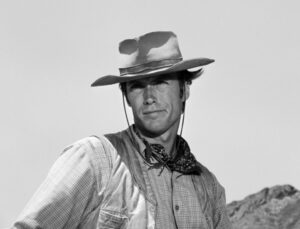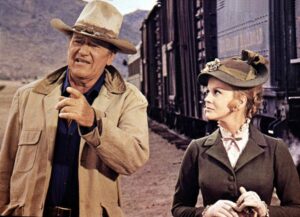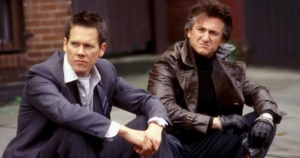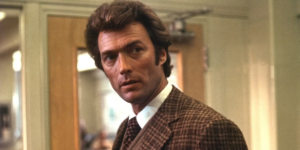The Darkness Of The Searchers Stuck With John Wayne Even When He Wasn’t On Set
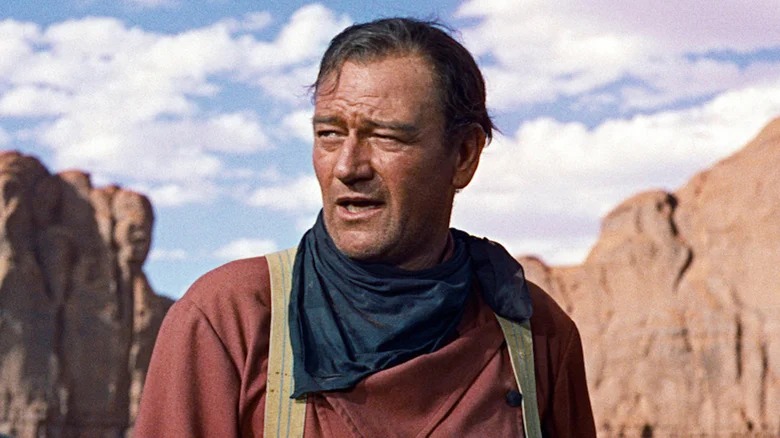
John Wayne might’ve been an ornery cuss. He might’ve made the worst film of his career in support of the Vietnam War at a moment when it was clear to anyone with two eyes and a conscience that the conflict was a moral and logistical sinkhole. He was a racist.
But he never wrote a single movie he performed in, and, from everything I’ve read about him, tailored movies to fit his persona — i.e. what he thought audiences expected from him as a movie star. “The Green Berets” is an outlier. For the most part, Wayne understood that he couldn’t play infallible heroes. He had to bleed. He had to lose a fistfight or two, or at least take some serious lumps en route to a hard-won victory. On rare occasions, he had to die. Regardless of where the film was headed, when he stepped in front of a camera, John Wayne had to be human.
Wayne’s willingness to tarnish his heroic image post-stardom is on startling display in Howard Hawks’ masterful “Red River.” His Tom Dunson is a broke Texas rancher driven to madness whilst pursuing a perilous cattle payday in Missouri. He murders men in cold blood. He vows to kill his adopted son (Montgomery Clift). That performance prompted Ford to exclaim “I never knew that son of a b**** could act.”
Wayne at his best presented America at its worst
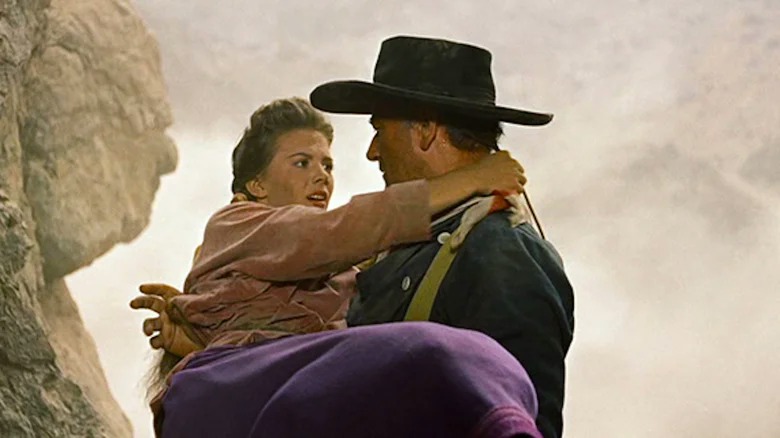 Warner BrosOne year after the release of “Red River,” Wayne turned in one of his most nuanced portrayals in Ford’s “She Wore a Yellow Ribbon.” But this was a warm-up for his turn as Ethan Edwards in Ford’s 1956 all-timer “The Searchers.” Wayne may be the protagonist of the movie, but the Confederate-soldier-turned-mercenary is as much of a villain as the Comanche chief who’s kidnapped his niece (Natalie Wood).
Warner BrosOne year after the release of “Red River,” Wayne turned in one of his most nuanced portrayals in Ford’s “She Wore a Yellow Ribbon.” But this was a warm-up for his turn as Ethan Edwards in Ford’s 1956 all-timer “The Searchers.” Wayne may be the protagonist of the movie, but the Confederate-soldier-turned-mercenary is as much of a villain as the Comanche chief who’s kidnapped his niece (Natalie Wood).
Wayne wasn’t a stupid man. He understood Ethan. And, according to David Welky and Randy Roberts’ “John Wayne: Treasures,” being Ethan took its toll on him emotionally. Harry Carey Jr., a Ford regular and friend to Wayne, was struck by the star’s darkened demeanor.
“[W]hen I looked up at [Duke] in rehearsal, it was into the meanest, coldest eyes I had ever seen. I don’t know how he molded that character. Perhaps he’d known someone like Ethan Edwards as a kid. He was even like Ethan Edwards at dinnertime. He didn’t kid around on ‘The Searchers’ like he had done on other shows. Ethan was always in his eyes.”
Ford and screenwriter Frank S. Nugent (working from a novel by Alan Le May) cleverly hemmed the Duke into a character who looked and sounded like just about every Western hero he’d been playing since “The Big Trail” in 1930. Ethan’s got Wayne’s trademark swagger and even gets a catchphrase (“That’ll be the day,” which, yes, inspired Buddy Holly’s definitive hit). But Ethan is a man burdened by hatred. He fought to preserve slavery for the South. He abhors the indigenous people of the land he’s travestied several different ways. There is no place for Ethan Edwards in the United States if this country is to bury its genocidal actions and rise to its lofty ideals.
John Wayne is immortal, and ours to reckon with forever
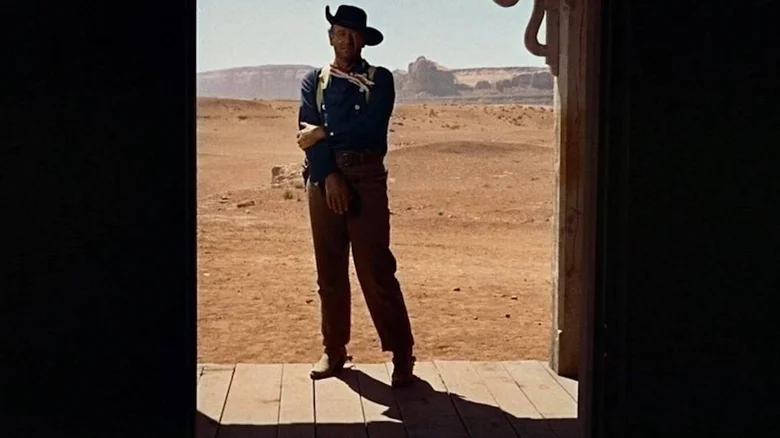 Warner BrosEthan likely haunted Wayne because, whether he could admit or not, both men had outlived their usefulness. John Wayne remains the quintessential American movie star because his heroism is tragically situational. In a perfect world, Ethan’s niece is never jeopardized because we’d rein in our sense of manifest destiny and learn to live alongside the people who were here before us. That he’s tasked with rescuing her is a failure of humanity, one in which he played a crucial role.
Warner BrosEthan likely haunted Wayne because, whether he could admit or not, both men had outlived their usefulness. John Wayne remains the quintessential American movie star because his heroism is tragically situational. In a perfect world, Ethan’s niece is never jeopardized because we’d rein in our sense of manifest destiny and learn to live alongside the people who were here before us. That he’s tasked with rescuing her is a failure of humanity, one in which he played a crucial role.
Taken as a whole, John Wayne’s career was one macho misadventure. On one hand, he codified the cinematic ideal of what a man should be, but on the other, in his very best movies, he showed us with excruciating specificity how being this kind of man leads to nothing but misery.
Wayne’s legacy does not belong to him alone. It’s a collaboration shared with several great filmmakers, and it is ours to pick over for as long as images can flicker or stream across a screen. America wouldn’t be America without wanton killing, and the movies wouldn’t be the movies without John Wayne. We’re stuck with the bastard. You can inveigh against him all day long, and this is wholly valid, but you cannot erase him.
